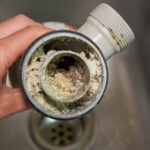Do you own a water heater that’s more than ten years old? You might be hesitating to let it go for one reason or another, but your relic of a water heater might be draining your wallet and the planet.
Older systems require more energy, produce higher emissions, and work harder. Although you could continue counting on water heater repair in New Brunswick, NJ, seeking upgrades may be more beneficial, especially if you care about sustainability.
Out with the Old, In with the Efficient
Water heaters over a decade old are inefficient by today’s standards. They run longer, require more maintenance, and often struggle to work compared to modern counterparts.
Homeowners who make the switch will:
- Reduce annual energy bills by hundreds
- Shrink your home’s carbon footprint
- Increase home resale value with updated systems
Electric Means Cleaner
Electric water heaters offer a cleaner option compared to gas-powered models. This is especially true when paired with solar. They’re safer, produce no combustion emissions, and align well with renewable energy setups.
“Electric water heating is the next frontier for low-emission homes,” says a water heater replacement technician.
If you’re already using solar panels, upgrading to an electric model can further boost your home’s sustainability.
Breathe Easier with Fewer Emissions
Older water heaters produce more greenhouse gases due to inefficient combustion and standby losses. Newer tankless and energy-efficient models, meanwhile, are built differently. The latter complies with strict emissions standards, translating to cleaner air inside and outside your home.
Choose units with:
- High UEF (Uniform Energy Factor) ratings
- Low-NOx emissions (for gas models)
- Heat pump functionality to draw ambient air instead of burning fuel
Beyond the Tank: Exploring Tankless and On-Demand Options
Beyond having a space-saving design, tankless water heaters heat water on demand, eliminating energy loss from stored water and delivering endless hot water when you need it. They’re ideal for smaller homes, eco-conscious households, or anyone looking to cut down on waste.
Other options include:
- Heat pump water heaters: Pull warmth from surrounding air—great for mild climates
- Solar water heaters: Harness the sun to preheat water and cut electric use
Smart Water, Smarter Savings
Smart water heaters connect to apps and home automation systems to manage energy use. You can schedule heating cycles, track usage trends, and get leak alerts directly on your phone. These models are perfect for busy homeowners who want better control without constant monitoring.
Benefits of going smart:
- Reduced energy consumption
- Real-time efficiency tracking
- Remote troubleshooting capabilities
How to Make Your Current Unit More Efficient
Not quite ready to jump into a new water heater installation? You can still cut your energy use with the right habits.
First, turn down your thermostat. 120°F is plenty for most households, and doing this simple change can improve efficiency while reducing operating costs. Next, don’t overlook the impact of having your tank flushed annually. This is a great way to get rid of any sediment or buildup that affects your heater’s efficiency.
Maintenance today can delay a costly replacement tomorrow.
When to Repair, When to Replace
Although homeowners can definitely rely on the advertised lifespan of a water heater to know when to have their unit replaced, there are times when upgrading isn’t always obvious.
When in doubt, replace your unit if:
- The water heater is over 10 years old
- Utility bills are steadily rising
- Rust-colored water or odd smells
- Multiple recent repairs or part replacements
Decoding the Labels
Reading energy labels can feel like decoding a foreign language. Look for UEF ratings (the higher, the better), Energy Star certification, and First-Hour Ratings if you have a high-usage household.
Quick breakdown:
- UEF: Measures efficiency across different usage patterns
- Energy Star: Identifies certified low-energy products
- First-Hour Rating: How much hot water the unit can provide in 1 hour
The Environmental Footprint of Your Hot Shower
Every gallon of hot water takes energy and time to produce. And the longer you need to heat water, the more energy is spent. Multiply that by daily use, and your outdated water heater becomes one of your home’s biggest polluters.
Reducing your system’s load has ripple effects on the planet, from smaller power plant demand to cleaner local air. Environmental wins of an upgrade include fewer greenhouse gas emissions, less water waste from outdated tanks, and reduced strain on the power grid.


